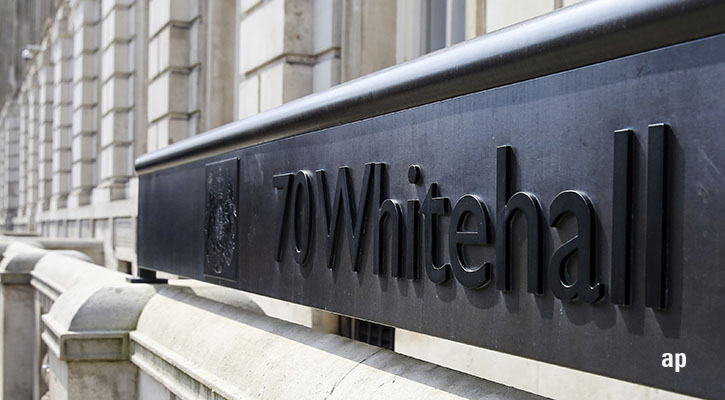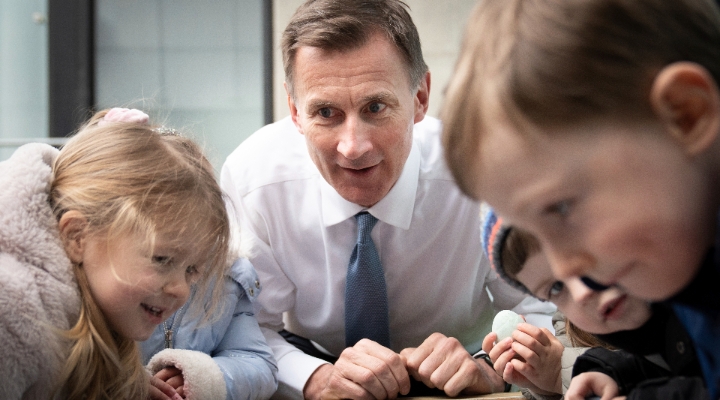The new tax year is in full swing, accompanied by a raft of changes to allowances and thresholds. Britons are now facing the highest tax burden in peacetime – and Bank of England’s chief economist Huw Pill says that, with inflation still above 10%, we should just get used to being poorer.
On Tuesday we had government figures showing the balance between what it brought in terms of receipts and what it pays out in terms of spending. The British state is bringing more in than ever, but it's still not matching spending.
With tax such a key issue, especiallly with a general election looming next year, it’s always useful to look back at how much was paid in total in any given tax year.
Handily, HM Revenue & Customs (HMRC) just put out figures for the last tax year. These show how much income tax, capital gains tax (CGT) and inheritance tax (IHT) was paid last year, which are key metrics for investors and those involved in estate planning.
In total HMRC brought in £786.6 billion in receipts in the most recent financial year, £71.1 billion higher than the year before. See this table for more.
Last year Morningstar.co.uk quizzed Twitter users on how many people paid CGT in 2020-2021 out of a potential cohort of more than 31 million taxpayers. The majority chose 32,000, but the actual answer was 323,000. That means around 1% of taxpayers paid it. Or, in simpler terms, 99% of people didn't.
HMRC bundles in income tax, CGT and national insurance contibutions (NICs), which were £440.9 billion in the last tax year – £47 billion higher year on year. This is then broken down into PAYE and National Insurance contributions, or NICs, which came in at £378.2 billion and self-assessment income tax/NIC receipts, which were £62.4 billion.
Looking ahead, halving the CGT tax-free allowance this year to £6,000 – and a halving next year to £3,000 – is likely to bump the number of CGT payers up. But so far the government has (against expectations ahead of the Autumn Statement) left the CGT rates unchanged.
In future, these rates could be aligned with income tax rates, which go up to 45%. Advisers caution this won’t immediately bring a windfall for government coffers as CGT can be deferred. Savers can always delay selling that painting, or buy-to-let property, or expensive watch to avoid triggering the tax. Despite various ways to mitigate inheritance tax, it’s much harder to defer the inevitable in that case.
It's also worth mentioning that in the March Budget, Jeremy Hunt scrapped the pensions lifetime allowance, which limits the amount savers can put into their pensions during their lifetimes. The pensions annual allowance was also increaed to £60,000 from £40,000, while the money purchase annual allowance and tapered annual allowance were raised to £10,000 from £4,000.
Death and Taxes Hard to Avoid
Inheritance tax is unpopular, not least because of its high flat rate of 40%, but because it captures some of the "wealth" accrued in property over the multi-decade housing boom. This is particularly true in areas where house prices are higher, such as London and south-east England.
There are allowances (and additional ones for passing on primary residences), and they are transferable on death. But the government made the decision in 2021 to freeze these allowances to 2025-2026. As we’ve seen from previous occasions, this usually means more people end up paying it. We’ll see the effect of this "fiscal drag" in future data.
IHT brought in £7.1 billion between April 2022 to March 2023, £1 billion higher than in the same period a year earlier.
By comparison, stamp duty receipts were £19.3 billion, £0.7 billion above the previous tax year’s number. Stamp duty receipts have been volatile in recent years because of lockdowns’ effects on house transactions as well as stamp duty "holidays" to keep the housing market moving during the pandemic.
For those taxpayers in need of some positives at this point, it's possible chancellor Jeremy Hunt will offer tax cuts this year if the public finances continue on their recent trajectory. While this is classic electioneering, taxpayers will no doubt be grateful for the giveaway.
The author or authors do not own shares in any securities mentioned in this article. Find out about Morningstar's editorial policies.


























